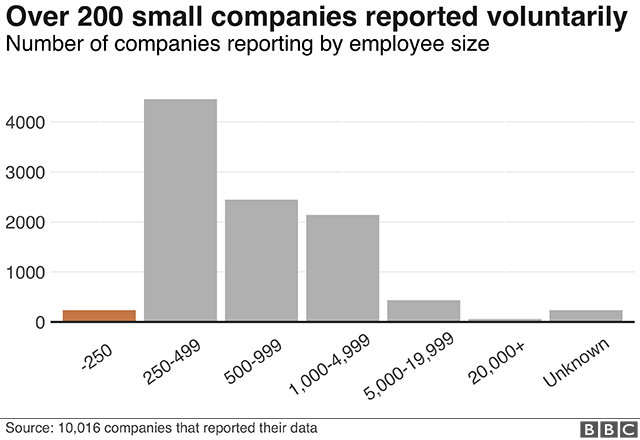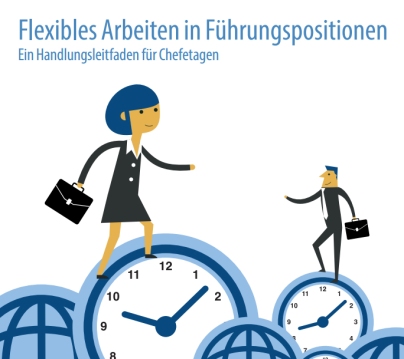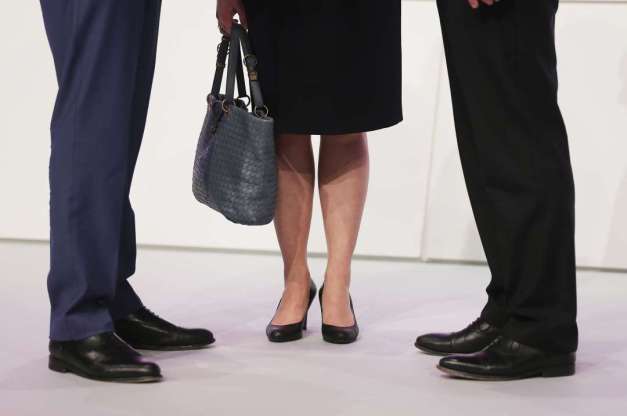 Image copyright Getty Images
Image copyright Getty Images
For the first time, the extent of the pay differences between men and women in the UK has been exposed.
But apart from that headline fact, the statistics contain a wealth of other information.
So what did we learn?
1) Fewer than one in seven companies pays women more than men are paid
If you are a woman working at a large UK firm, you're most likely working at a company which pays men more than women, on average.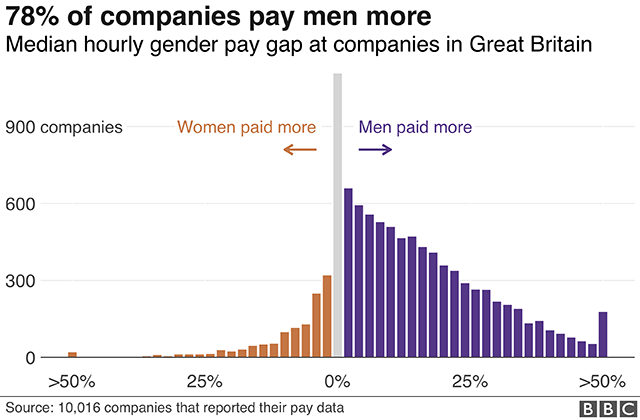
Nearly eight in 10 firms, 78%, have a pay gap in favour of men, while 8% of companies reported no pay gap at all.
This is based on the median pay gap.
If you line up all the men and women working at a company in two separate lines in order of salary, the median pay gap will be the difference in salary between the woman in the middle of her line and the man in the middle of his.
2) Men make up the majority of higher-paid jobs
The gender pay gap doesn't tell us whether women are being paid less than men for the same work, which has been against the law since the Equal Pay Act was introduced in 1970.However, it does give us a measure of the differences in men and women's working patterns: different occupations, part-time roles being predominantly female - and the lack of women in senior roles.
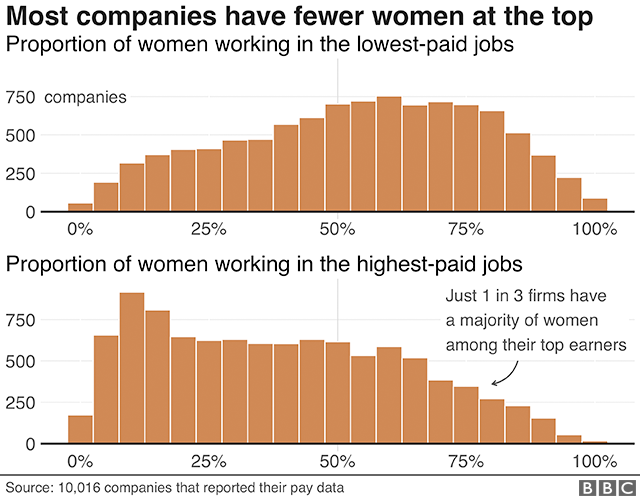
Take the airline industry: pilots are almost exclusively men, while women predominantly work as cabin crew. Airlines EasyJet, TUI, Thomson, and Jet2.com all have pay gaps of at least 45%.
Ryanair revealed a 71.8% pay gap this week, the largest in the airline industry by some distance and one of the widest across all sectors.

Finance firms have reported the biggest fall in women between the lowest-paid and the top-paid workers.
JP Morgan has the biggest pay gap among major banks, 54%. Fewer than one in 10 employees in the bank's highest-paid group are women.

3) Men are also paid higher bonuses than women
Along with salary figures, firms have been required to disclose the differences in bonuses paid to men and to women.The finance sector has the biggest bonus gap, with women paid 35% less than men on average.
In other words, sector-wide, for every £1 of bonus money paid to men working in finance, their female colleagues will take home just 65p.
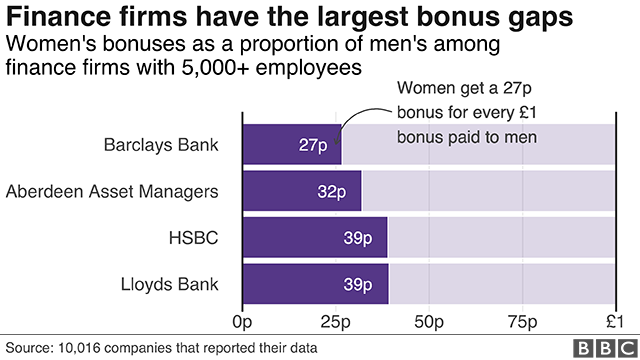
- Russell Group universities: the University of Liverpool reported a 90% bonus gap. The University of Manchester has an 87% bonus gap.
- Many NHS health trusts report large gaps, like the Sheffield Teaching Hospitals NHS Foundation Trust's 94.3% gap.
4) There's no sector that pays women more
However, there are huge differences between sectors.Construction and finance firms reported the widest pay gaps. Just 44 of the 743 firms that have reported in these sectors pay women more than they pay men.
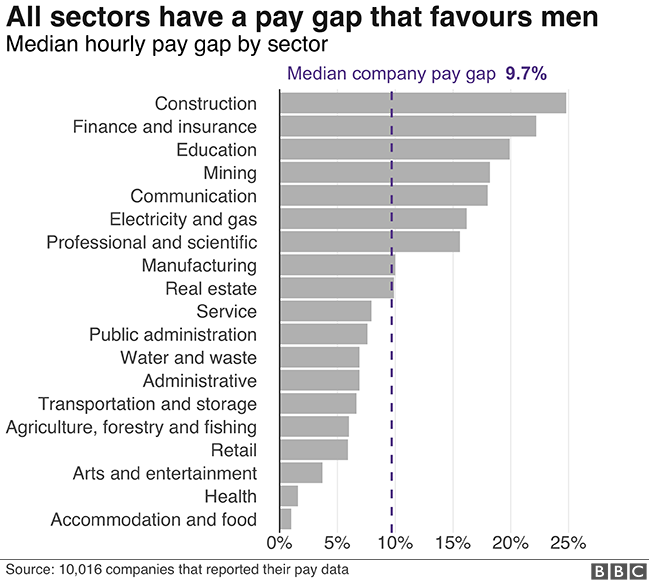
Nearly 40 of the 100 companies with the biggest pay gap are schools or academy trusts. All of them reported median pay gaps of at least 50%, meaning men were paid twice as much as women on average.
- Why do schools have a massive gender pay gap?
5) There was a big deadline rush
Companies were scrambling to get their reports in ahead of the midnight deadline on 4 April, with half of firms reporting in the week leading up to the deadline.Some 1,500 reported their pay gap figures in the last day alone.
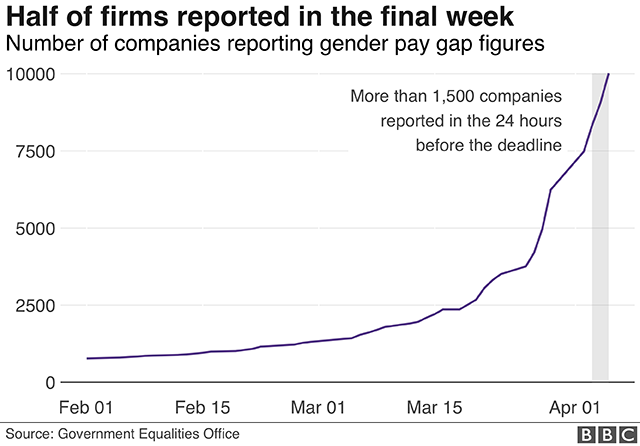
6) 1,500 firms are missing - but hundreds filed voluntarily
More than 1,500 companies failed to report in time, according to the Equalities and Human Rights Commission (EHRC).All companies, charities and public sector bodies with more than 250 employees are required to report their gender pay gap figures.
The EHRC is investigating 1,557 firms that missed the deadline, to see whether they fall into this category. Firms that fail to comply could face an unlimited fine.
